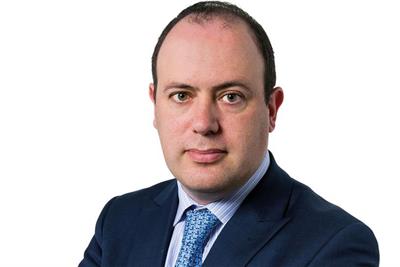"Making waves happens when media, content and technology come together," according to Wavemaker, the new agency formed by the merger of MEC and Maxus.
But making waves can feel difficult and slow, especially if the sea is already choppy and there are powerful currents working against you.
That’s the position in which Wavemaker and its parent company, Group M, the media-buying division of WPP, find themselves as they battle to reinvent the business.
Kelly Clark, the global chief executive of Group M, who returned to WPP a year ago, and Tim Castree, who is heading Wavemaker, are both smart, new leaders.
But it has taken more than three months to announce Wavemaker, a name that MEC already used for its content division, and the whole rebrand isn’t due to complete until January.
That will be seven months since the merger was first announced. Even those close to Group M admit they wish they were moving faster and that the limbo period has unnerved some staff.
Look back a year ago to September 2016 and WPP’s rival, Omnicom, had already launched Hearts & Science and won two mega-accounts, Procter & Gamble and AT&T in the US, within nine months.
Change is hard. Starting with a blank sheet of paper and cherry-picking talent, as Hearts & Science did, is a lot easier than merging two existing businesses with 8,500 staff and two sets of management.
At least the merger of the MEC and Maxus teams is nearly over and virtually all of Wavemaker’s top leaders have been appointed in a more simplified structure.
So what could success look like for Wavemaker and Group M?
Win new business from multi-national companies
It’s essential after MEC lost AT&T and Maxus lost Fiat Chrysler. New clients, particularly growth companies from the digital world, could define the future shape of the business, which has been too local for WPP’s liking.
Keep clients and staff happy
A lot of MEC and Maxus clients are staying in Wavemaker while several major brands, including NBC Universal, Target and BT, have moved to Essence seemingly without trouble.
But there’s still chatter that some clients are restless and staff churn is said to have risen in both MEC and Maxus.
"Focus on the primacy of client relationships and needs"
Those words, from Castree, are more significant than they might sound and don’t just mean keeping clients happy. Everyone knows media agencies need to redeem themselves after the report by the US Association of National Advertisers into "non-transparent" practices.
Develop new capabilities
Castree is styling Wavemaker as a media, content and technology agency because the "growing forces of commoditisation" are eating into the media element, he says. Think of brands in-housing marketing services and data and buying directly from digital media owners.
He is betting on differentiation. He wants Wavemaker to develop MEC’s own proprietary technology around purchase journey planning and will link that with m[Platform], Group M’s shared data resource for all its agencies.
That raises an interesting question about differentiation and the unresolved balance of power between the media agencies and Group M and, ultimately, WPP, which is increasingly pushing all its agencies to work as "one company".
Change can be good. Sir Martin Sorrell, the chief executive of WPP, is fond of saying his company has always been "market-driven".
He merged the media departments of Ogilvy and J Walter Thompson in 1997 to form Mindshare. MEC itself was formed by the merger of Media Edge and CIA in 2002.
The creation of Group M followed soon after, as an operating company to harness the group’s trading scale.
The launch of Wavemaker and the elevation of Essence, which was acquired in 2015, can both be seen in this context as WPP responding again to market-driven needs.
But this is a "contested" time, as Castree says, with a lot of new entrants and digital disruption.
Wavemaker needs to prove it can make waves, not just respond to them.
Gideon Spanier is head of media at 北京赛车pk10



